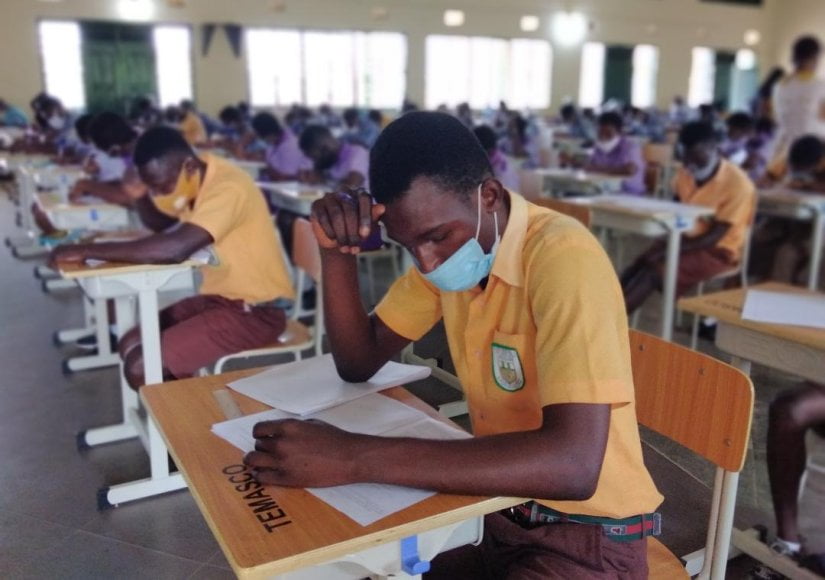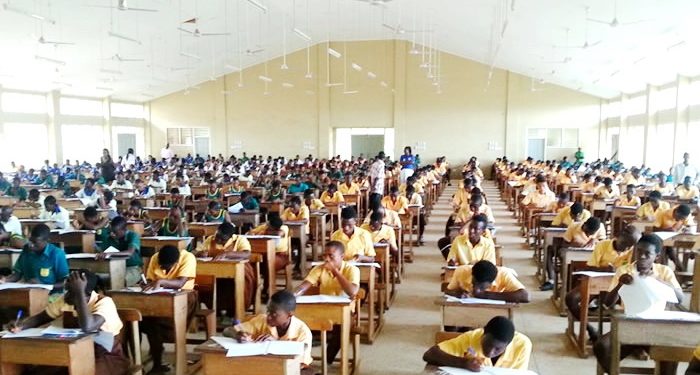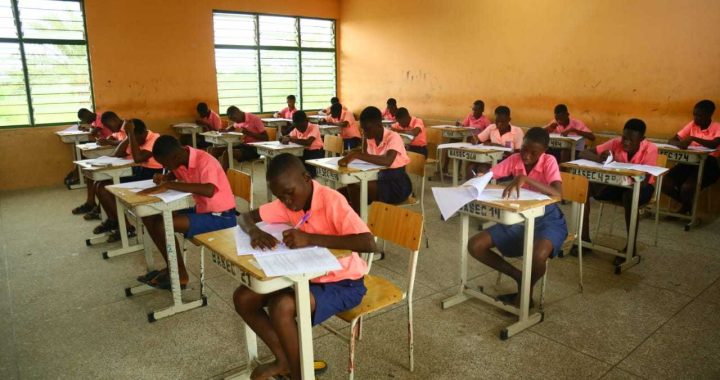2022 Likely BECE RME Questions WAEC can ask you: We have the answers

This publication contains 2022 Likely BECE RME Questions WAEC can ask you. We have provided suggested answers as well.
2022 Likely BECE RME Questions WAEC can ask you
(a) Describe the extended family system in Ghana.
Suggested facts to include in the answer for full marks
– It comprises of various nuclear families
– Many generations (great grandparents, grandparents, parents, children, grandchildren,
greatgrandchildren) of the family live together as one
– Several relations (uncles, aunties, nephews, nieces, cousins, etc) live together as one unit
– Each member has a responsibility towards other members of the family
– The system is led by the family head (Abusuapanyin)
Give five advantages of the extended family system
(i) Other family members take up the responsibility of caring for the children in the absence of biological parents
(ii) Members gain broad knowledge, experience and wisdom from elders in the extended family.
(iii) Children are able to learn their native language properly.
(iv) Children do not go wayward (get spoilt), even if parents are absent for long periods.
(v) Greater security of members due to larger size
(vi) Members are able to properly learn / apply the culture / customs of their native background
(vii) Where parents are irresponsible, the children have other family members to depend on for guidance, assistance and security.
(viii) Members benefit from strong relationships among family members
(ix) More opportunities for progress in life, due to help from other members in the extended family
READ: 2022 School Selection Guidelines and New Features Released
d. Give three reasons why people prefer the nuclear family system.
f. List any five things God created according to the creation story of the Bible.
(i) Air
(ii) Rainfall
(iii) Plants
(iv) Earth
(v) Water bodies
(vi) Animals
(vii) Stars
(viii) Moon
2022 Likely BECE RME Questions WAEC can ask you
State three usefulness of any three of them to mankind.
CREATION USEFULNESS
Air
(i) For respiration in man
(ii) Plants use it for photosynthesis to provide food for man
(iii)Used for ventilation
(iv) For burning of materials
(v) For transportation by sail boats
Rainfall
(i) Softens the ground for easy ploughing and sowing
(ii) Makes plants grow well
(iii) Provides water for domestic use (bathing, washing, etc)
(iv) Provides water for irrigation of farms
(v) Makes the weather cooler for greater comfort
(vi) Supplies water to increase the volume of water bodies
Plants
(i) Several plants provide food for animals and humankind
(ii) Some plants can be used as herbs or for medicine
(iii) Certain plants (trees / timber) are used for furniture and
building materials
(iv) Plants (trees) serve as windbreaks that reduce the
2022 Likely BECE RME Questions WAEC can ask you
Question: Explain the Parable of the Good Samaritan
Introduction: Jesus told this parable in answer to a question from a lawyer wanting to know who his neighbour was. This was after they had talked about loving God and loving our
neighbours as ourselves.
Narration:
– A man was travelling from Jerusalem to Jericho.
– On the way, he was attacked by robbers (thieves), who removed his clothes, beat him up, left him severely injured and went away.
– After some time, a priest passed by that wounded man and went away without helping him
– A Levite also came that way, saw this wounded man, crossed to the other side and left without attending to the man.
– Then a Samaritan, who was also travelling that way also came to where the wounded man was lying.
– When he saw Him, he had compassion on him, went to him, cleaned the man‟s wounds and dressed it.
– He then carried the wounded man, put him on his own donkey (by which he was travelling) and sent him to an inn / clinic.
– He asked the caretaker to take care of the man till he comes back and paid for the services
READ: Solving English Essay Questions: Complete Guide to Mastering and Passing
Question: Give any five Lessons that could be learned from the story
(i) A good neighbour is someone who helps, not just someone close
(ii) It is more important to offer help to those who need it, than merely being religious
(iii) We must be willing to offer help, even to strangers (but these days, with great caution)
(iv) Helping people is more important to God than practicing religion
(v) We must be careful about using unsecured routes or passages, especially if we are alone.
(vi) Shortcuts (concerning life in general) can be dangerous
(vii) Life is more important than religious rituals.
(viii) God looks at the heart to judge, not on the outside.
(ix) Sometimes people, whom we think cannot or will not help, are the ones who actually offer the greatest help.
(x) We must be willing to sacrifice our comforts for others
(xi) At times, those we think should be more helpful are rather wicked
(xii) We must not judge people by their tribe / colour / sex / religion, etc.

 Bimbilla: College of Education students leave campus as CETAG strike continues
Bimbilla: College of Education students leave campus as CETAG strike continues  Angie’s Leaked Tape: Angie Stylish Has Disgraced Konongo Odumase School – School Mate Angrily Speaks
Angie’s Leaked Tape: Angie Stylish Has Disgraced Konongo Odumase School – School Mate Angrily Speaks  1st STEM College of Education in Ghana: Bawumia cuts sod for construction
1st STEM College of Education in Ghana: Bawumia cuts sod for construction  Stop denying students exeat; NAGRAT to SHS Heads
Stop denying students exeat; NAGRAT to SHS Heads  BECE; Four Teachers caught up for assisting students- WAEC
BECE; Four Teachers caught up for assisting students- WAEC  North Tongu District BECE Candidates prevented from wearing shoes or belts
North Tongu District BECE Candidates prevented from wearing shoes or belts  Bawumia’s smartphone pledge misguided and visionless – Adongo
Bawumia’s smartphone pledge misguided and visionless – Adongo  Good Grow: The Marijuana Farm Founded by Akufo-Addo’s Daughters
Good Grow: The Marijuana Farm Founded by Akufo-Addo’s Daughters  National Food Suppliers for Free SHS set to picket at Education Ministry
National Food Suppliers for Free SHS set to picket at Education Ministry  Information Ministry justifies ¢151k paid to staff as Covid-19 risk allowance
Information Ministry justifies ¢151k paid to staff as Covid-19 risk allowance